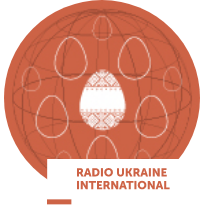1. Situation in Donbas – Weekly Review
Russian-backed militants have resorted to Grad multiple rocket launchers again to attack Ukrainian positions in eastern Ukraine. On Tuesday night, the separatists were firing the Grad rockets for two hours near the village of Talakivka, Donetsk region. This was reported by the counter-terrorism operation headquarters in Kyiv. The Donetsk and Mariupol directions remain in the epicenter of hostilities. Militants keep shelling the strategically important town of Avdiivka and Bulivka coal mine (Donetsk region) on a daily basis. However, this week the general amount of separatists’ attacks has diminished. Alexander Hug, Principal Deputy Chief Monitor of the OSCE Special Monitoring Mission to Ukraine said, “This week our monitors observed 2057 ceasefire violations, a 5 per cent decrease comparing on the week before. Where there are ceasefire violations – there are weapons that should have been withdrawn in accordance with the Minsk agreements.”
Meanwhile, the Ukrainian parliament passed the law on the cyber security of Ukraine. “We are in war with Russia. One of the components of this war is cyberattacks. Ukraine is now the first and only country involved in real cyberwar,” as said Oleksandr Danchenko, Chairman of the Committee on Informatization and Communications. He emphasized the importance of providing legal powers to the Ukrainian secret services to prevent the power system from being disconnected, the spread of viruses, and so on. Almost 3 months ago, Ukraine experienced a large-scale hacker attack, which struck computers of the government, banks, and enterprises. Similar cyber attacks were also reported in other countries.
In the near future, Ukrainian soldiers will gain an American military experience. The US National Guard will train the Ukrainian army. The training will last for about nine months. More than 200 American soldiers have already arrived in the Yavoriv International Center for Peacekeeping in the Lviv region, Western Ukraine. The training group will teach tactics in five battalions of Ukrainian troops annually. American troops will form part of the Joint Multinational Training Group. Upon completion of the exercises, Ukrainian soldiers must successfully undergo the same training that US soldiers take.
2. Reforms Agenda Is Busy in Ukraine
The Verkhovna Rada of Ukraine has supported the bill on Donbas reintegration and the recognition of Russia as an aggressor state. The bill approved in the first reading determines that the Russian Federation's temporary occupation of territories in Donetsk and Luhansk regions is an illegitimate act. The activities of the Russian armed forces and other military formations and the occupational administration of the Russian Federation, which are contrary to the norms of international humanitarian law, are deemed illegal. The bill states that the purpose of the state policy on ensuring the state sovereignty of Ukraine over the temporarily occupied territories in Donetsk and Luhansk regions is, in particular, the liberation of said territories and the restoration of the constitutional order there; as well as the protection of the rights, freedoms and legitimate interests of the Russian aggression. According to the bill, the state of Ukraine is not responsible for the illegal actions of the Russian Federation as an aggressor state, its armed forces, other military formations and the occupation administration in the temporarily occupied territories in Donetsk and Luhansk regions. It also said that in order to ensure national security and defense, deter and repel Russian aggression in Donetsk and Luhansk regions, the Armed Forces of Ukraine and other military formations shall be used, as well as the Ministry of Internal Affairs of Ukraine, the National Police of Ukraine, the central executive authority, which implements state policy in the field of civil protection.
Meanwhile experts positively appraised the law passed by the Ukrainian parliament on Tuesday, which amends the main procedural codes of Ukraine. In particular, the new law gives the way to a comprehensive judicial reform. It provides changes to the Economic Procedure Code of Ukraine, the Civil Procedure Code and a number of other legislative acts. Ukraine’s President Petro Poroshenko said the reform of the judicial system was one of the Euromaidan requirements and one of Ukraine's commitments to European partners. He stressed,”The law was passed. Its adoption now opens the way for a judicial reform, which will be launched right after the introduction of the new Supreme Court. The changes to the codes are the most thorough normalization of a judicial process and bringing it in line with world’s best judicial practices.”
The final text of the law has not been made public yet, because it is due to be signed by the president. But what is already known is that the document introduces mechanisms for automated arrest of funds, which will make the execution of court decisions more effective. The interviewed lawyers have also emphasized other positive moments of the reform – these are clear criteria for jurisdiction delimitation of administrative, economic and general courts, the phased introduction of “e-justice”, and improved system of cases distribution among judges. The national appeal system will be reduced from four to three stages before appealing to international courts, as the Venice Commission of the Council of Europe has long pointed out. Ruslan Kniazevych, chairman of the parliamentary committee on legal policy and justice, told reporters that the law takes into account the comments of public experts and organizations. According to him, the norms regarding the access restriction to court sessions and a judge's right to determine the spot for broadcasting or photo shooting have been removed. The president is also ready to introduce a draft law on establishing Anti-corruption court in Ukraine. However, he supports the idea of a simultaneous establishment of the Anti-corruption chamber in the Supreme court. According to him, the basis for launching a judicial reform has become the law "On the judicial system and status of judges" adopted by the Verkhovna Rada. He included in the draft a norm on establishing the Anti-corruption court. And the money to this end is envisaged in the 2018 state budget. He continued that all courts in Ukraine have to be anti-corruption.
3. European Parliament Condemned Russian verdicts against pro-Ukrainian Crimean Activists.
Members of the European Parliament condemned the verdicts against Ilmi Umerov, Akhtem Chyihoz, Mykola Semena and other pro-Ukrainian activists convicted by the Crimean occupational authorities. The relevant resolution was adopted on Thursday, according to the press service of the European Parliament. “Prosecution against the Tatar community should be stopped. Members of the European Parliament condemn the sentences against Umerov and Chyihoz, as well as Semena,” the statement reads. According to the press service, these sentences are serious violations of human rights and should be abolished. The MPs demand the immediate release of Umerov and Chyihoz, as well as the cancellation of charges against Semena. “The reality of repressions and the application of legislation on extremism, terrorism and separatism have led to a serious deterioration of the human rights situation in the Crimean peninsula and the widespread violation of freedom of speech,” according to the European Parliament. The basic freedoms of citizens are not guaranteed. The European Parliament stressed once again that the Crimea annexation by the Russian Federation is illegal and violates international law and European treaties signed both by the Russian Federation and Ukraine. Previously, Ukraine’s National Union of Journalists presented the results of monitoring the rights of journalists in Crimea. The number of physical violence against media representatives decreased significantly - from 39 in 2014 to two last year. However, the problems are still there. 75 cases of physical aggression against journalists during their professional duties have been recorded since the beginning of the year. This was confirmed by yesterday's monitoring results. Tetiana Pechonchyk, expert of the Human Rights Information Center, says the Center continuously monitors the human rights situation there. “Of course, if there are fewer attacks, it does not mean that journalists can work freely and very well. In the case of Crimea, this only means that all critically-minded journalists were either pushed out of the peninsula or pushed out of the profession. For example, 10 media outlets, with entire editorial teams, have moved to the mainland part of Ukraine,” said Tetiana Pechonchyk.
4. EU – Ukraine Autonomous Trade Measures Came into Force
EU's autonomous trade measures for Ukraine came into force on October 1, following the decision of the European Parliament and the EU Council to give Ukraine temporary additional trade preferences. The EU has thus increased quotas for imports of Ukrainian tomatoes and honey, which it set for a period of three years as a supplement to the EU-Ukraine Agreement on a Deep and Comprehensive Free Trade Area. EU Trade Commissioner Cecilia Malmstrom and Ukraine’s Trade representative Natalia Mykolska said in a joint statement that the EU Regulation on autonomous trade measures would top up the quantities of agricultural products that Ukraine can export to the EU under the Association Agreement without paying customs duties. It will also accelerate the elimination of EU import tariffs for several industrial products, as foreseen in the Association Agreement. This is an important sign of the EU's continued, tangible economic and political support for the Ukrainian people, the country and its reform efforts. In terms of agricultural products, Ukraine will have an opportunity to export bigger quantities of wheat, maize, barley, oats and barley groats and pellets to the EU without customs tariffs. These trade preferences will also benefit industrial sectors, for example Ukrainian producers of footwear, fertilisers, aluminium products and consumer electronics. The EU and Ukraine also work to ensure the opportunities and benefits for EU and Ukrainian business within the framework of the DCFTA. Ukraine’s Trade representative Natalia Mykolska said, “We discussed the issue of establishing the state system supporting exports in Ukraine under the EU's guidance. This will include export support institutions, an export credit agency, and a unified web portal for Ukrainian exporters.”
In the first half of this year – according to Eurostat – trade in goods between the EU and Ukraine increased by 23% and the EU continues to strengthen its position as the first trade partner of Ukraine. Overall, the European Union accounts for around 40% of Ukraine's total exports and we are convinced that this additional trade opening will give a further boost in fostering strong trade ties between the EU and Ukraine, and support further expansion of Ukrainian exports to the EU, following the trade restrictions imposed by Russia.
5. Ukraine’s Team Was Among the Best at Invictus Games
The 2017 Invictus Games have been a huge success for the Ukrainian team that left Toronto with 14 medals won. On Monday Ukrainian heroes returned home to show off their medals and share their stories. As the championship came to a close the whole world is focused on the final medal count. This year the Invictus Games featured servicemen and woman from 17 nations. Ukraine's team was small, with only 15 athletes representing the country, but they were fierce in determination to make their nation proud of them. Ukraine's war veterans won a total of 14 medals including 8 gold, 3 silver and 3 bronze ones. Such a performance is particularly impressive in the light of Ukraine's recent history and the war in the east of the country. "Even though our team was one of the smallest, we want to believe that team Ukraine has convinced the whole world that our military are strong in spirit and body and never succumb to either enemies or life circumstances," reads a statement posted on the official Facebook page of the Ukrainian team. For them it was one of the ways to defy stereotypes about wounded servicemen in this country by showing that even disabilities can’t stop Ukraine’s servicemen from representing their nation on the international arena with pride and dignity. The most successful Ukrainian athlete was Pavlo Budayevsky who claimed four gold medals in swimming - 50m freestyle, 50m backstroke, 50m breaststroke and 100m freestyle. Pavlo believes that sports creates a smooth transition between deployment and homecoming, especially for those soldiers who have difficult time adjusting to civilian life. He said, ”I turned to swimming right after homecoming, it was my rehabilitation, I knew that sports is a helpful tool to take mind off what was bothering me, to fight off stress, both physical and mental. We should work hard and keep on dreaming and our dreams will come true. Our dreams help us to live on.”
Other first place winners were Oleg Zimnikov with gold in the 1500 meter sprint, Roman Panchenko who scored best in beginners’ archery, Oleksander Pysarenko who took gold in rowing, and Vasyl Pashkevich, who earned the number one spot in the powerlifting event.
As RUI reported earlier, the Incivtus Games is an international sporting event for wounded, ill and injured servicemen and women, both currently serving and veterans. Named after Invictus, Latin for "unconquered" or "undefeated", the event embodies the fighting spirit of the wounded, injured and ill service personnel and what these tenacious men and women can achieve, post-injury. This was Ukraine’s first time at the tournament.
Ukrainian Diary – digest of the most important news over the past week (Audio)
7.10.2017 р., 23:30
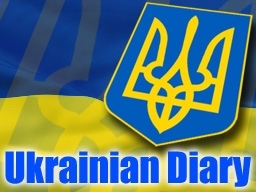
Останні новини
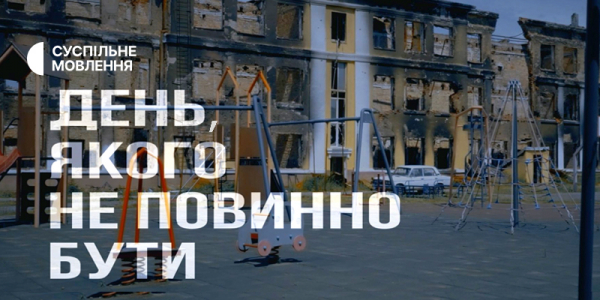
"День, якого не повинно бути" — поезія темних часів на Радіо Промінь

"Без Обмежень" новою піснею закликають берегти військових
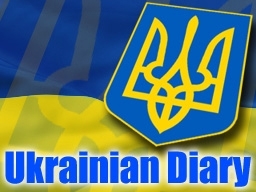
Ukrainian Diary – digest of the most important news over the past week
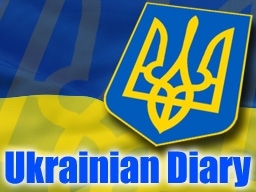
Ukrainian Diary – digest of the most important news over the past week (audio)
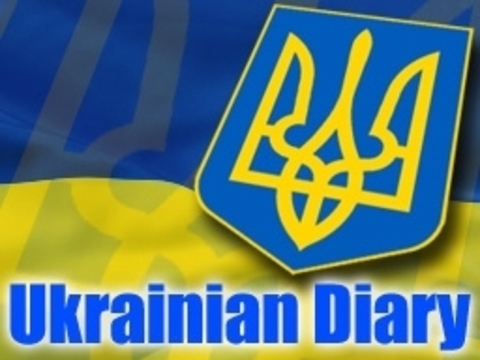
Ukrainian Diary – digest of the most important news over the past week



